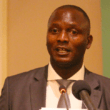Mines Minister Richard Musukwa has revealed that Konkola Copper Mines (KCM) has failed to comply with a Business Improvement Plan it pledged to fulfil with government to address various operational challenges.
And Musukwa says mines in Zambia will continue to run and be operated by private entities because government has no plans to nationalise them.
Responding to a question from Nchanga PF member of parliament Chilombo Chali on whether there there was an improvement in terms of compliance in the various aspects of KCM’s operations following the 2013 audit, Musukwa said there had been no significant improvement.
In 2014, Vedanta, Konkola Copper Mines’ parent company, made several commitments in a Business Improvement Plan (BIP) to revitalise its operations.
The BIP was committed in writing to help KCM raise fresh liquidity to the extent of US $250 million for meeting operational requirements and settling overdue creditors, which to-date are still owed.
That same year, controversial Vedanta Resources chairman Anil Agarwal had made lucid revelations that the firm made in excess of US $500 million profits despite having acquired KCM for a paltry US $25 million.
“Following the 2013 audit of Konkola Copper Mine, there has been no significant improvement in terms of compliance in various aspects of the mine. KCM has not complied with the Business Improvement Plan, which was agreed upon following the audit. Production at KCM has not improved, it has declined further to 84,436 tonnes in 2017. This is an indication that KCM did not inject the committed resources in order to improve production,” Musukwa revealed to Parliament.
He, however, said government was monitoring KCM very closely.
“Government has noted with regret that KCM continues to pose a challenge in terms of its viability and sustainability. To that effect, government is monitoring KCM very closely, and as a procedural aspect in terms of the Mines and Minerals Act, government did actually issue a default notice for KCM to ensure that they remedy all the issues that were outlined in the audit that was conducted. Mining operation is a business, they are not here for charity or to assist us. They are here to make profits and we must ensure that while they are here, government and the people of Zambia must get the benefit going forward.”
Musukwa added that as of October, 2018, KCM had still owed suppliers and contractors over US $80 million.
Chiengi FDD member of parliament Given Katuta then asked a follow-up question on why government cannot place KCM under liquidation since they were perpetual defaulters.
“I wanted to find out from the Minister, he said KCM has never improved in its production, it’s been going down. He said that they have been defaulting. So, my question is that, since these are perpetual defaulters, why can’t government place these mines under liquidation and appoint a receiver? Because since they are perpetual defaulters, they are likely not to fulfil what the government has asked them to do? We need another investor who can do better than the current investors,” Katuta demanded.
But in response, Musukwa said government could not place KCM under receivership now because the company had other obligations, which they were currently following.
He, however, added that government had placed a higher premium on KCM to ensure that they did the right thing and followed the law.
“We cannot put the company under receivership as of now because the company has other obligations, which they are currently following and doing. What is lacking is for them to comply in terms of the standard processes that we have put across. Government will move in to ensure that we protect the investment and the jobs for our people. We have placed a higher premium on the company (KCM) to ensure that they do the right thing and they follow the law of land,” he replied.
And Musukwa announced that mines in Zambia will continue to run and be operated by private entities because government has no plans to nationalise them.
He was responding to a question from Kabwe Central PF member of parliament Tutwa Ngulube in Parliament, Wednesday evening, who asked whether government intended to nationalise Konkola Copper Mine (KCM) as it appeared to have given them a lot of problems.
“KCM appears to have given government a lot of problems, starting with compliance in terms of paying taxes, secondly, in terms of environmental issues and in terms of all these audits that we are talking about. Does government intend to take back the shares, or to nationalise KCM so that the country can run it or give it to other would-be investors?” Ngulube asked.
But in response, Musukwa said government was not in any way in the business of running mines, insisting that mines in Zambia would continue to run and be operated by private entities.
“Government is not in any way in the business of running mines. Mines in Zambia will continue to run and be operated by private entities with the interest of government in terms of shareholding across the mining houses. We have no plans to nationalise, but we have serious concerns of ensuring that the private entities, such as KCM follow the law,” responded Musukwa.
“In the absence of KCM following the law, it is just natural justice that the right thing must be done. People or entities who have the capacity or shareholders who are able to invest in KCM must be encouraged to do so than allow our investment to continue to lag behind. In terms of paying taxes, no one should be a sacrificial lamb, no one should remain behind. All mining houses have a duty to contribute to the tax basket of the country.”











